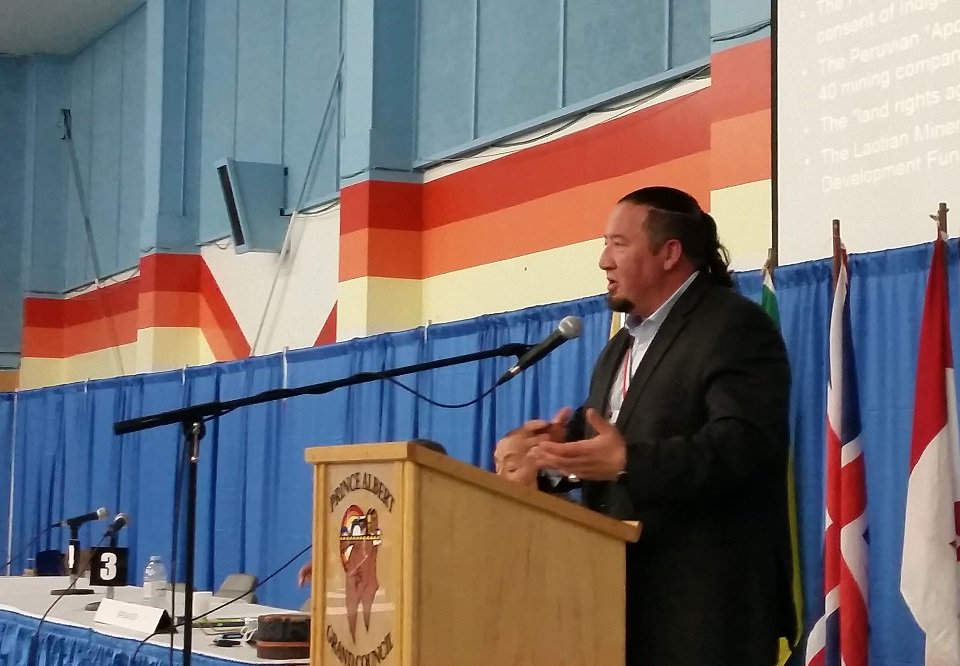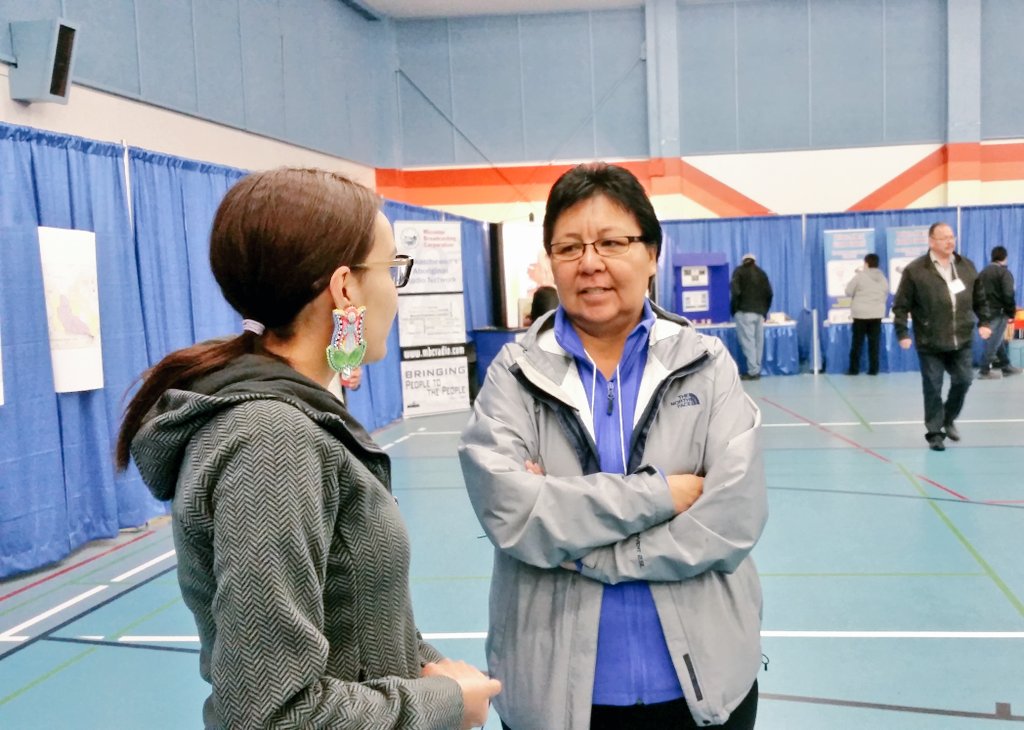A summit in Prince Albert is talking about the past and future of how the prairie’s treaty nations deal with natural resources.
The two-day Natural Resource Transfer Agreement Summit is hosted by Prince Albert Grand Council this year. It revolves around the 1930 agreement that says First Nations ceded their natural resources to the Crown, which in turn gave that control to the provinces.
First Nations leaders from Alberta, Manitoba, and Saskatchewan are talking about the historic idea that they’ve given up control of their lands.
Manitoba Grand Chief Derek Nepinak disputed that idea, calling it “fraudulent” when speaking to hundreds of delegates at the Senator Allen Bird Memorial Centre on Wednesday afternoon.
“Nobody should be tricked into thinking we would hand over the rights to our own future,” he said.
He says other governments and industry have put a dollar value on First Nations resources, but the true tie is between the health of their people and the health of their land.

When talking about the prevalence of suicide on reserve, Nepinak said he believes First Nations are losing their people because it seems their people have given away their future. He referred to the lack of energy sovereignty that has hidden people from seeing the potential of their lands.
“We need to take decisive steps” to restore hope, Nepinak said, using a farm of solar panels on a reserve he recently visited as an example.
“(Youths) need to see that we’re making investments for them,” he said.
FSIN Youth speaker Andre Bear says talks need to focus on more than just federal funding, because First Nations have a role in protecting Mother Earth.
“We know that when we die and go to the spirit world that those ancestors will be waiting for us and they’re going to ask what we’ve done to protect our land, to protect our ceremonies and our way of life,” he said.
For years, chiefs and leadership from Saskatchewan, Manitoba, and Alberta have talked about getting their fair share of wealth from the resources on their lands.
Both Nepinak and Bear say their people need to focus on the wellbeing of their people first and foremost.
“I really hope that the chiefs and the leadership can come to a consensus, (that) a balanced kind of arrangement can take place with protecting the lands and of course with balancing social inequities with the funds they receive from resource sharing and stuff like that,” Bear said.
“They know and they’ve been reminded that it is up to our people to protect these lands and resources.”
During his time at the mic, Nepinak took a divisive stance in saying that all oil extraction should be abandoned. In making his point, he said scientists have found that 80 per cent of the earth’s oil should stay in the ground to ensure that the world is still habitable beyond the next 50 to 80 years.
On Wednesday there were also messages from FSIN Vice-Chief Dutch Lerat and others, such as FSIN youth speaker Cheyenne Fineday.

As the daughter of a First Nations politician, she says she often travelled with her father to events like this.
“It’s so important to involve our young pepole because what they don’t realize is that they’re our next leaders, the next generation. They’re gonna be the ones who are gonna be sitting aroudn these talbes, who are going to be carrying on our culture and our language and protecting our treaty rights. So it’s so important that we include them and that we make them aware,” she said.
The summit was created years ago after members of Prince Albert Grand Council and leadership from other First Nations in other provinces found that they faced many similar issues.
PAGC Grand Chief Ron Michel said the Woodland Cree, Sioux, Saulteaux, Dene, Anishinaabe, and Dakota people come together as allies to stand up to governments that use systemic intimidation and systemic abuse of their traditional way of life.